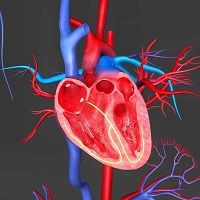PCSK9 Inhibitor Dramatically Reduces Cholesterol in Patients with Familial Hypercholesterolemia
The Sanofi/Regeneron PCSK9 inhibitor alirocumab (Praluent)- approved in July in the US - lowered cholesterol in patients with familial hypercholesterolemia to levels "unreachable with statins" researchers said at the European Society of Cardiology meeting in London, UK.

The Sanofi/Regeneron PCSK9 inhibitor alirocumab (Praluent)—approved in July in the US—lowered cholesterol in patients with familial hypercholesterolemia to levels “unreachable with statins” researchers said at the European Society of Cardiology meeting in London, UK
Reporting on the results of the ODYSSEY FHI and II trials, John JP Kastelein, a professor of medicine at the University of Amsterdam in the Netherlands said the drug is good news for patients with this rare disease because “approximately 80% of these patients are unable to reach their LDL-C goals.”
The study included 1 257 patients with heterozygous familial hypercholesterolemia from four 18-month ODYSSEY trials (FH I, FH II, HIGH FH, LONG TERM). It assessed the benefits of adding the PCSK9 monoclonal antibody alirocumab to statins and other standard of care therapy, compared to standard of care therapy (including statins) and placebo. In FH I and FH II patients initially received alirocumab 75 mg (n=490) compared to placebo (n=245) while in HIGH FH and LONG TERM they initially received alirocumab 150 mg (n=348) compared to placebo (n=174). In addition, patients who initially received alirocumab 75 mg had their dose adjusted to 150 mg at week 12 if they did not achieve their pre-specified LDL-C goal by week eight.
The primary endpoint of all four trials was the percentage change in LDL-C from baseline to week 24, analysed by intention to treat. The researchers found that patients who initially received alirocumab 75 mg had an average 55.8% greater reduction in LDL-C from baseline versus placebo, and those who initially received alirocumab 150 mg had an average 56.4% greater reduction (p<0.0001 for both comparisons).
Using measures that were collected while patients were still receiving treatment (on-treatment analyses), LDL-C reductions were maintained over 78 weeks with an average 56.1% greater reduction versus placebo in the group initially treated with alirocumab 75 mg and potentially up-titrated to 150 mg and 63.2% greater reduction versus placebo in the patients treated only with alirocumab 150 mg group (p<0.0001 for both comparisons).
The average LDL-C level at baseline was 3.7 mmol/L (141.2 mg/dL) in the pool of FH I and FH II patients and 4.3 mmol/L (166.1 mg/dL) in the pool of HIGH FH and LONG TERM patients with heterozygous familial hypercholesterolemia. In on-treatment analyses, alirocumab reduced average LDL-C levels to less than 2.2 mmol/L (85 mg/dl) by week 12 and reductions were maintained to week 78. Treatment-emergent adverse events occurred in a similar proportion of patients on alirocumab (80.5%) and placebo (83%) leading to study discontinuation in 3.9% and 3.6% patients, respectively.
“This is the largest Phase 3 analysis of patients with heterozygous familial hypercholesterolemia,” said Kastelein. “Despite high baseline levels, alirocumab reduced LDL-C concentrations to less than 1.8 mmol/L (70 mg/dL) at week 24 in 63% of patients in FH I and II and in 56% of patients in the pool of HIGH FH and LONG TERM patients. Studies with other lipid lowering therapies have only reached LDL-C levels of less than 2.5 mmol/L (97 mg/dL) in around 20% of patients.”
“The results show that adding alirocumab to statins in patients with heterozygous familial hypercholesterolemia rapidly lowers LDL-C to unprecedented levels that are unreachable with statins alone, and that these reductions are maintained in the long term,” he continued. “Alirocumab is a PCSK9 inhibitor and belongs to a new class of cholesterol-lowering monoclonal antibodies. It works by preventing action of the PCSK9 protein, which in turn increases the number of LDL receptors and thus increases uptake of LDL-C from the circulation.”
Sanofi and Regeneron funded the study.